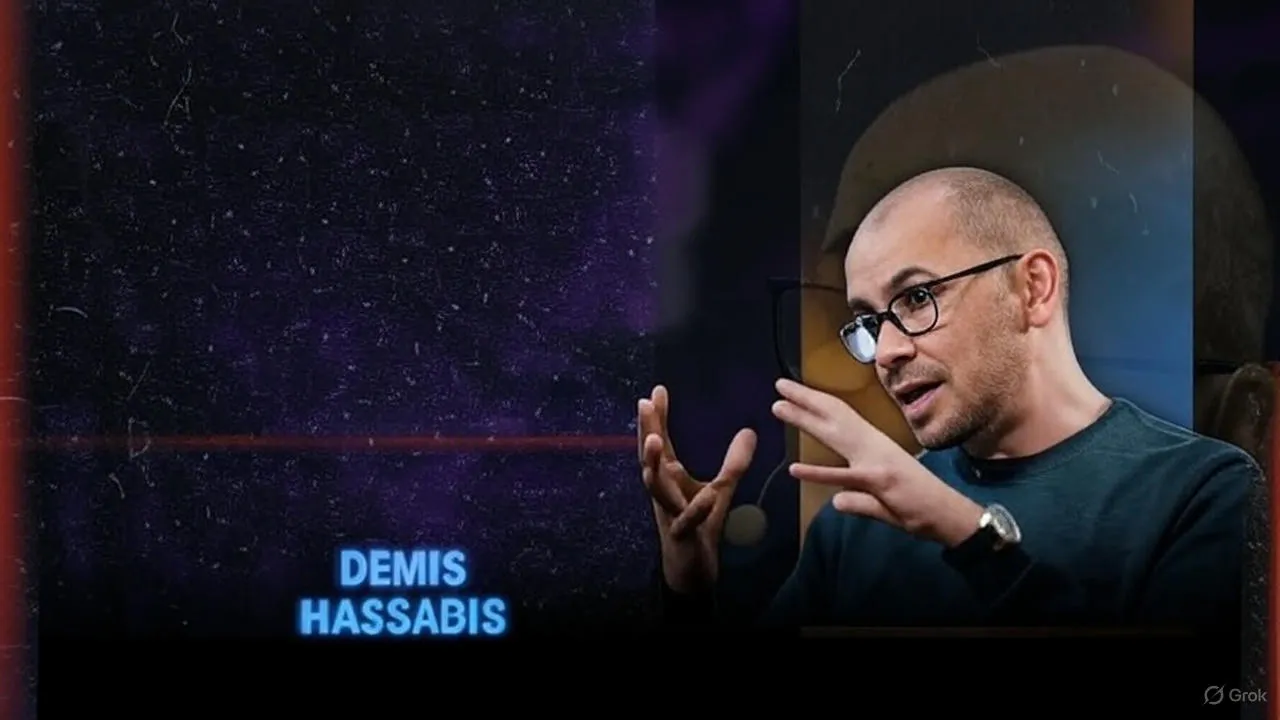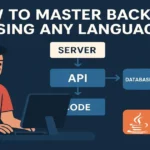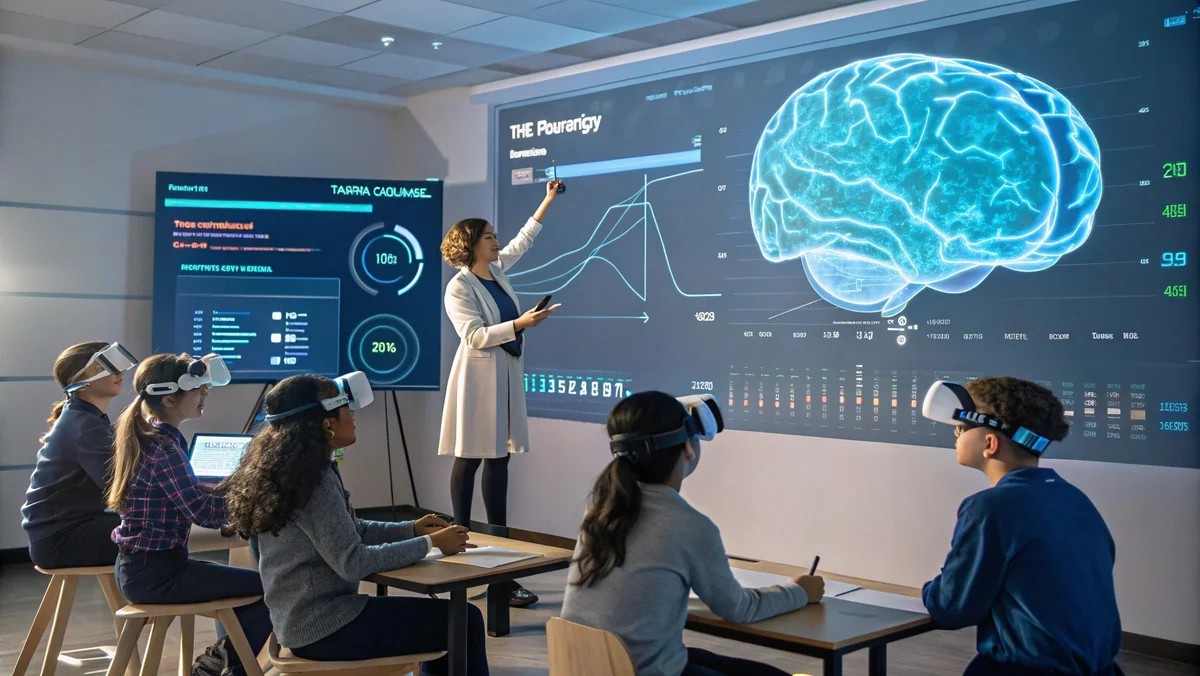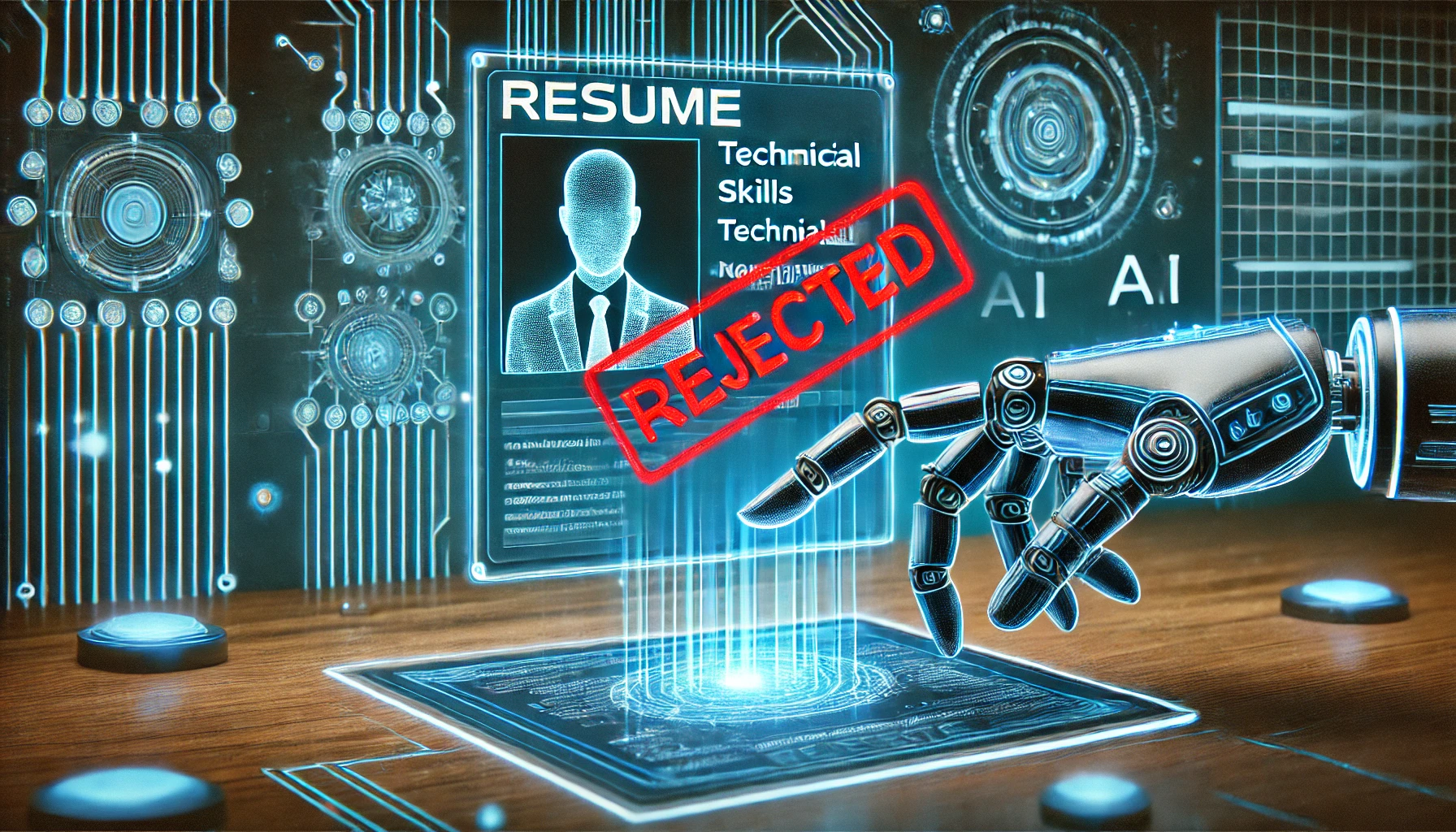Demis Hassabis (born July 1976) is a British AI researcher and entrepreneur renowned for founding DeepMind. He grew up in London as the son of a Greek-Cypriot father and a Singaporean Chinese mother. A childhood chess prodigy, Hassabis achieved a master-level rating by age 13 and captained his school’s chess team. He taught himself programming on a home computer and by age 17 was co-designing video games. In 1994, he was the lead programmer on Theme Park, a hit simulation game he helped create while still a teenager. After finishing high school two years early, he won a place at Cambridge University, where he earned a double first in computer science and again captained the college chess team. His early career blended games and AI: after Cambridge, he worked at Bullfrog/Lionhead and in 1998 founded Elixir Studios to make award-winning AI-powered games.
Despite his success in gaming, Hassabis returned to academia out of a “passion for AI algorithms.” He earned a PhD in cognitive neuroscience at University College London (UCL) in 2009, studying how memory and imagination work in the brain. (His UCL thesis was titled “Neural processes underpinning episodic memory”.) He then did postdoctoral research at MIT and Harvard before co-founding DeepMind in London in 2010–11. His blend of deep knowledge in computer science, neuroscience, and game AI set the stage for his later breakthroughs.
Bridging AI and Neuroscience
Hassabis’s scientific work spans both cognitive neuroscience and AI. While at UCL, he co-authored influential brain-imaging studies on memory and imagination; for example, his 2007 Journal of Neuroscience paper showed that creating imaginary scenes uses many of the same brain regions as recalling real memories. Science magazine listed Hassabis’s “memory with imagination” research among its Top 10 scientific breakthroughs of 2007. In interviews, he has said that everything in his background – chess, games, brain science – was aimed at understanding intelligence. As he told TIME, “Without understanding [the brain’s] algorithmic level… I had in mind AI the whole time… I used every single scrap of that experience”.
Ever since his PhD, Hassabis has advocated a neuroscience-inspired AI approach. DeepMind itself is often described as a “neuroscience-inspired AI company”. Hassabis has co-authored scholarly articles (e.g. a 2017 Neuron review) arguing that insights from how the brain processes information can drive new AI methods. At DeepMind, he hired neuroscientists, psychologists, and physicists alongside engineers, explicitly melding disciplines. For example, his knowledge of brain learning informed how AlphaGo’s team trained its neural networks via trial-and-error feedback (reinforcement learning) – “inspired by how the human brain learns,” as DeepMind noted. In short, Hassabis has both made his mark in neuroscience and used brain-science principles to build better AI.
Founding DeepMind and Key Milestones
In 2010–2011, Demis Hassabis co-founded DeepMind Technologies (with Shane Legg and Mustafa Suleyman) as a UK startup focused on pursuing general AI. Under his leadership, DeepMind concentrates on deep learning and reinforcement learning in game domains as testing grounds for intelligence. The company’s early work included applying deep networks to Atari games, but its first public spectacle was AlphaGo. In a series of high-profile matches, AlphaGo beat the reigning Go world champion Lee Sedol 4–1 in March 2016 – a feat considered a decade ahead of schedule. DeepMind’s report explains that AlphaGo’s success “proved that AI systems can learn to solve the most challenging problems in highly complex domains”. This victory (and its inventive “Move 37” that stunned experts) ignited worldwide interest in AI.
DeepMind then pushed further. In October 2017 the team unveiled AlphaGo Zero, which learned Go from scratch with no human game data and defeated the original AlphaGo by 100–0. These breakthroughs demonstrated a path to general game-playing algorithms. DeepMind’s successors, AlphaZero and MuZero, soon mastered chess, shogi and Atari games with similar techniques. In January 2019, DeepMind announced AlphaStar, the first AI to beat a human on the complex real-time strategy game StarCraft II. AlphaStar convincingly won 5–0 against top pro player Grzegorz “MaNa” Komincz under standard tournament rules.
Beyond games, Hassabis led DeepMind into scientific applications. The biggest example was AlphaFold, a deep-learning system to predict protein structures. In a landmark Nature paper (2020), DeepMind showed AlphaFold achieved unprecedented accuracy in the Critical Assessment of protein Structure Prediction (CASP) competition. DeepMind emphasized that AlphaFold’s 3D protein models are “far more accurate than any that have come before”. In 2022 they released AlphaFold predictions for nearly all cataloged proteins for free public use. These advances revolutionized biology: it is estimated millions of researchers worldwide are now using AlphaFold’s database. For this work Hassabis (with colleague John Jumper) was awarded the 2024 Nobel Prize in Chemistry.
Under Hassabis’s tenure, DeepMind accrued many other achievements (e.g. WaveNet speech synthesis, protein design AlphaCodec, drug discovery efforts, etc.), but the hallmark has been aiming for general AI by solving hard real-world problems. After Google acquired DeepMind in 2014 (for about $500–$600 million), Hassabis remained CEO of DeepMind and later became head of Google’s overall AI efforts (merging DeepMind with Google Brain). Today DeepMind’s legacy includes not only the victories of AlphaGo/Zero/Star/StarCraft but also pushing the entire field toward reinforcement learning and the idea that AI can crack longstanding scientific puzzles.
Ethical Perspectives on AI
From the start, Hassabis has coupled his AI enthusiasm with a strong emphasis on safety and ethics. He has repeatedly urged caution: in a TIME interview he warned “we need to be careful” with “very powerful” technologies like AI. He compared AI risks to other existential threats, signing a public statement (October 2023) that exhorted regulators to treat “the threat of extinction from AI” as a societal risk on par with pandemics or nuclear war. In an earlier Guardian interview he argued that AI dangers are “as serious as other major global challenges, like climate change,” and said we “must take the risks of AI as seriously as … climate change”.
These convictions shaped DeepMind’s policies. Hassabis insisted on principled red lines from DeepMind’s founding. When Google moved to acquire DeepMind, he agreed only because Google “was very happy to accept” the startup’s ethical limits “as part of the acquisition”. (Reports at the time said Google set up an independent ethics board for DeepMind.) Under Hassabis the company drafted AI “red lines” forbidding certain applications: DeepMind publicly commits not to develop technologies for surveillance, autonomous weaponry, or privacy-violating tasks. Internally, DeepMind has its own ethics review committee (the Institutional Review Committee) with representatives across the company. According to TIME, Hassabis has maintained that AI work should include “firm guardrails” from day one and that the researchers should always think in terms of “the endgame… 20 steps ahead”.
Hassabis also participates in the global AI safety conversation. He served as a UK government AI adviser and attended international summits (e.g. the UK’s 2023 AI safety summit). He has stressed that thoughtful governance and cooperation are needed to ensure that “first AI systems… are built with the right value systems”. In interviews he argues for “smart regulation” of AI that evolves with the science, and has said that while today’s systems are not yet existential threats, we must invest “in research into controllability and understanding these systems” now. Overall, Hassabis combines confidence in AI’s promise with repeated warnings that its development must be guided by ethical principles and precaution.
Vision for the Future of AI
Hassabis has an ambitious, long-term vision: leveraging AI as a tool to solve humanity’s greatest problems. He defines Artificial General Intelligence (AGI) as systems matching “all the cognitive capabilities we have as humans”. He has publicly predicted there is roughly a “50 percent chance” of achieving this level of AI within the next five to ten years. In interviews he even stakes out bold scenarios: for example, he told Wired that if all goes well, by around 2030 AI could usher in “an era of radical abundance” where AGI solves root-world problems like diseases and energy and allows humanity to “travel to the stars and colonize the galaxy”. He believes properly developed AGI could create a “golden era” of scientific and social advancement.
At the same time, Hassabis is realistic about disruption. He notes that AI will change the job market “in scary” ways, likely automating many tasks. But he argues new jobs will emerge and humans will become “almost a bit superhuman” in productivity with AI tools. He speculates that AGI-driven abundance might shift society’s behavior toward cooperation: “AGI will give us radical abundance and then… we shift our mindset as a society to [a] non-zero-sum” perspective – in other words, with fundamental needs met, people can afford to be less selfish. He frankly admits our current institutions aren’t solving issues like climate change despite knowledge of remedies, but he hopes “great philosophers” and AI combined could nudge human priorities toward global coordination.
Hassabis also underscores the complementary role of humans and AI. In his Nobel Prize interview he explained that scientists remain essential: AI can analyze data and suggest patterns, but humans must still ask the right questions. “These systems… can’t figure out what the right question is to ask,” he said, so “the best scientists paired with these kinds of tools will be able to do incredible things”. DeepMind itself was structured as an interdisciplinary “melting pot” of experts from machine learning, physics, biology and even philosophy, reflecting Hassabis’s belief that blending knowledge areas will drive AI advances.
In summary, Demis Hassabis has charted a course from video games to cutting-edge AI and neuroscience research. He built DeepMind into a powerhouse that has achieved historic wins in AI (Go, StarCraft) and tangible scientific breakthroughs (protein folding). He champions the potential of AI to advance science and society, while consistently warning of the risks and advocating careful stewardship. His vision – of artificial intelligence as a transformative, epoch-defining technology – is supported by both his track record of breakthroughs and his active role in debates over AI’s future. As he has said, AI is ultimately a tool for discovery, and when paired with human ingenuity it promises to allow scientists “to do incredible things”.
F&Q related to Demis Hassabis
Who is Demis Hassabis?
Sir Demis Hassabis (born July 27, 1976) is a British computer scientist, neuroscientist, and entrepreneur. He is the co‑founder & CEO of DeepMind (an Alphabet AI research lab), lead architect of breakthroughs like AlphaGo and AlphaFold, and a 2024 Nobel Prize in Chemistry laureate.
Where was he born, and what is his early background?
Hassabis was born in London to a Greek‑Cypriot father and a Singaporean Chinese mother. He grew up in North London and became a chess master by age 13. An avid gamer and tweaker, he bought his first ZX Spectrum computer with chess earnings and taught himself to code. He completed his A-levels two years early, studied computer science at Cambridge University (double first), and later earned a PhD in cognitive neuroscience from University College London in 2009.
What early achievements in chess and gaming set him apart?
By age 13, Hassabis had an Elo rating over 2 300 and captained England’s junior chess teams. As a teenager, he interned at Bullfrog Productions (after placing second in an Amiga‑Power competition) and became lead programmer on the management‑simulation game Theme Park. He later founded his studio, Elixir, responsible for games like Republic: The Revolution and Evil Genius.
What is DeepMind, and when was it founded?
In 2010–11, Hassabis co‑founded DeepMind (with Shane Legg and Mustafa Suleyman) as a London startup aiming to “solve intelligence” using general-purpose learning systems, then apply them to real-world problems. Google acquired DeepMind in 2014 for around £400‑450M. Hassabis stayed on as CEO
What are DeepMind’s most notable breakthroughs?
AlphaGo (2016): Defeated world Go champion Lee Sedol 4‑1 in Seoul—widely viewed as a watershed moment for AI. WikipediaWikipedia
AlphaGo Zero / AlphaZero / MuZero: AI systems that learned from scratch and mastered Go, chess, shogi, and Atari games.
WaveNet speech synthesis, AI energy optimization, medical imaging models, and more—establishing DeepMind as a leader in reinforcement and neuroscience‑inspired AI.
What is AlphaFold, and why did it win a Nobel Prize?
AlphaFold2 solved the 50‑year grand challenge of predicting protein 3D structures from amino acid sequences—achieving near‑laboratory accuracy in CASP14 (2020). In 2024, Hassabis (with John Jumper), and David Baker shared the Nobel Prize in Chemistry for the discovery. AlphaFold’s public database now hosts predictions for over 200 million proteins.
What is Isomorphic Labs?
Founded by Hassabis in early 2021 as a spin‑off of DeepMind, Isomorphic Labs is focused on applying AI to real‑world drug discovery. The company builds on AlphaFold’s protein‑folding platform and in 2024 initiated major collaborations with pharmaceutical firms like Eli Lilly and Novartis.
What are his views on AI ethics and safety?
Hassabis advocates that AI should be “taught morality like a child”—built from the ground up with safety limits. He firmly believes in building guardrails, international cooperation, and controlling access to powerful models like large neural nets. Hassabis has participated in multiple global AI safety summits, warning about autonomous or misaligned systems.
Sources: Authoritative profiles and interviews were used, including Britannica, DeepMind’s official blog posts, MIT/CBMM research center profile, the TIME and Wired magazine interviews, the Nobel Prize organization’s materials, and other reliable news coverage. These provide the factual and quoted details above.












